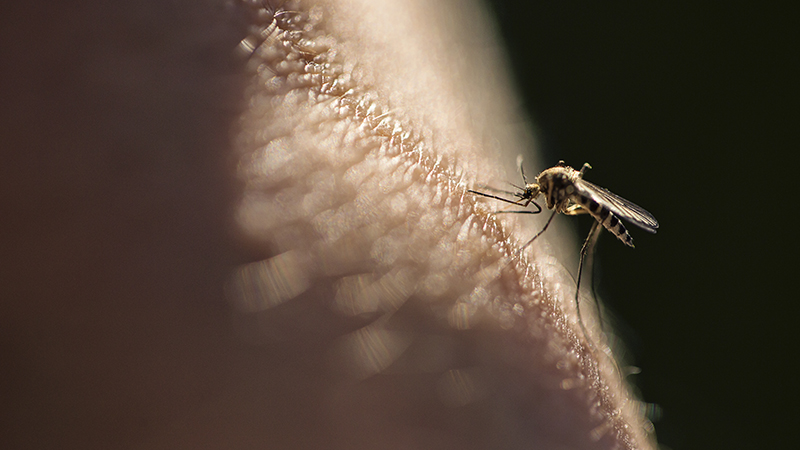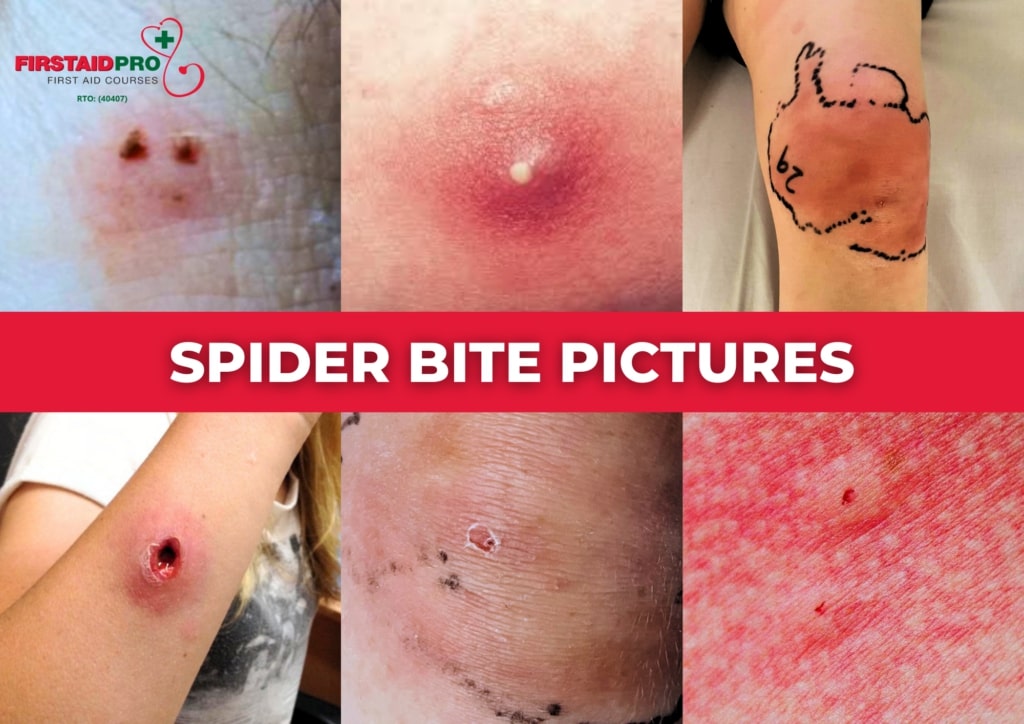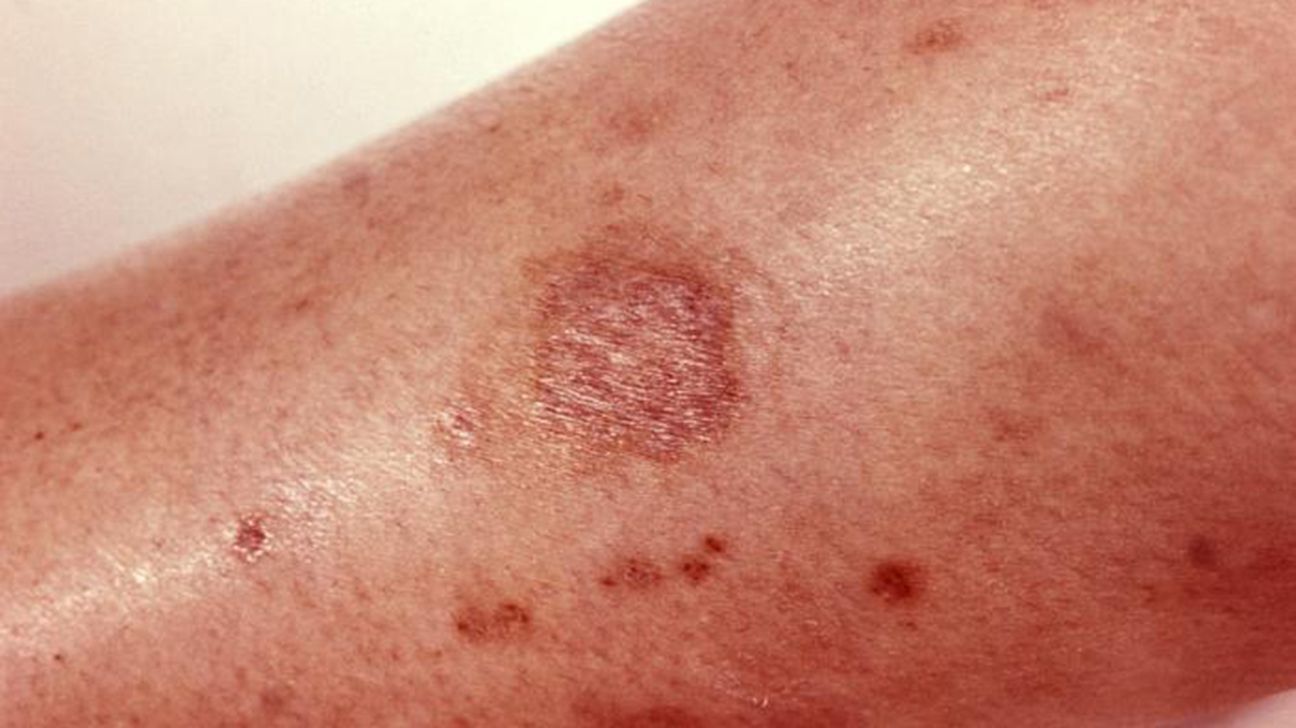Yes, spider bites can make you sick. Symptoms vary depending on the spider species.
Spider bites are a concern that many of us share, especially when venturing into areas where spiders are prevalent. While the majority of spider bites are harmless, causing little more than minor irritation, certain species can cause severe reactions. Recognizing the potential health risks associated with spider bites is crucial for ensuring prompt and effective treatment.
It’s essential to be aware of the types of spiders in your area and understand the symptoms that might indicate a more serious problem. This knowledge can help you take the necessary steps to protect yourself and your loved ones from the adverse effects of spider bites. Being informed about how to avoid these encounters and what to do in the event of a bite can significantly reduce the risk of complications.
The Reality Of Spider Bites
The Reality of Spider Bites stirs unease and curiosity alike. Despite their portrayal in media and folklore, spider bites are often misunderstood. This section delves into what truly happens when a spider bites and the health implications it may carry.
Common Misconceptions
- Spiders are aggressive: Most avoid humans.
- All bites are poisonous: Few species have venom that affects humans.
- Bites are always noticeable: Some go undetected.
- Any red mark is a spider bite: Other insect bites or skin infections can mimic them.
Identifying A Spider Bite
Recognizing a spider bite involves observing specific signs:
| Sign | Description |
|---|---|
| Initial pain: | Stinging sensation at the bite site. |
| Marking: | Two puncture points may be visible. |
| Swelling: | Area around the bite may swell. |
| Redness: | Reddening of the skin is common. |
| Itching or rash: | These may occur near the bite. |
Seek medical attention if symptoms escalate or if bitten by a known venomous spider.
Types Of Spiders To Be Wary Of
Spiders lurk in many corners of our world. Some can make you sick. Know which spiders to avoid. Keep reading to learn about the risky ones.
Venomous Spiders In Focus
Not all spiders are harmful. But some pack a venomous bite. These spiders demand respect and caution. Below is a list of venomous spiders to watch out for.
- Black Widow: Identified by a red hourglass shape on its belly. Its bite can cause severe pain and muscle cramps.
- Brown Recluse: Has a violin-shaped mark on its back. Bites may lead to tissue damage and require medical attention.
- Hobo Spider: Often mistaken for other species. Their bite can cause a necrotic wound, similar to the brown recluse.
- Brazilian Wandering Spider: Considered one of the most venomous. Its bite can be deadly if not treated quickly.
Geographical Distribution
Knowing where venomous spiders live can help you stay safe. Let’s explore their homes.
| Spider | Location |
|---|---|
| Black Widow | Found in the U.S., particularly in the South and West. |
| Brown Recluse | Common in the central and southern U.S. |
| Hobo Spider | Located in the Pacific Northwest of the U.S. |
| Brazilian Wandering Spider | Native to Central and South America. |
Recognizing The Symptoms
Recognizing the Symptoms of spider bites is key to understanding their impact on health. Spiders are common, yet most bites are harmless. Some can cause sickness. Know the symptoms to react promptly.
Mild Reactions
- Redness at the bite site
- Swelling around the area
- Itching or rash develops
- Pain similar to a bee sting
Most spider bites cause mild reactions. They get better on their own. Keep the bite clean. Use ice packs to reduce swelling.
Severe Symptoms
Some spider bites are dangerous. They need quick medical help. Watch for these signs:
- Difficulty breathing or swallowing
- Muscle pain or cramps spread in the body
- Fever or chills start
- Headache that feels very bad
- High blood pressure or fast heartbeat
Severe symptoms often come from black widow or brown recluse spiders. If these symptoms appear, see a doctor fast.

Credit: www.nm.org
When To Seek Medical Attention
Many wonder, can spider bites make you sick? The answer is yes, but it often depends on the type of spider and your body’s reaction. Knowing when to seek medical attention is crucial. This part of our blog focuses on what to do right after a spider bite and signs that show you need a doctor.
Immediate Response To Bites
Right after a spider bite, follow these steps:
- Clean the bite with soap and water.
- Use ice packs to reduce swelling.
- Keep the bitten area elevated.
- Take over-the-counter pain relievers if needed.
These actions help reduce symptoms and prevent infection.
Signs Of Complications
Some spider bites can cause serious problems. Look out for these signs:
| Sign | Action |
|---|---|
| Difficulty breathing | Seek emergency help. |
| Increased pain or swelling | Visit a doctor. |
| Fever or chills | Consult a healthcare provider. |
| Red streaks leading from the bite | Get medical attention. |
These symptoms might mean the bite is more serious than it seems.
Treatment Options For Spider Bites
Exploring treatment options for spider bites is crucial for quick recovery. Spider bites can range from harmless to severe, depending on the species. Knowing how to treat them can prevent complications. Here are practical treatment methods to consider.
At-home Remedies
- Clean the bite with mild soap and water.
- Apply a cold compress to reduce swelling.
- Elevate the affected area to decrease inflammation.
- Use over-the-counter pain relievers if needed.
- Antihistamines can help with itching and discomfort.
Professional Medical Treatments
Seek professional medical advice if symptoms escalate or if the spider is venomous. Here’s what doctors might suggest:
- Prescription Medication: For severe pain or infections.
- Antivenom: For specific spider bites.
- Tetanus Booster: If your shot is outdated.
- Monitor for allergic reactions or worsening symptoms.
Always consult a doctor for bites that do not improve or if you suspect a dangerous spider.

Credit: www.firstaidpro.com.au
Preventive Measures
Preventive Measures are key to staying healthy and avoiding spider bites. Spiders often bite as a defense mechanism. By taking certain precautions, you can reduce the risk of getting bitten. Let’s explore effective strategies to keep spiders at bay and ensure your well-being.
Avoiding Spider Habitats
Spiders thrive in quiet, undisturbed areas. Knowing where they may live helps you stay clear.
- Clear out clutter from garages, attics, and basements.
- Regularly sweep and vacuum corners and hidden spots.
- Trim vegetation near your home to limit spider access.
- Seal cracks and openings to prevent spiders from entering.
Protective Clothing And Gear
When entering spider-prone areas, proper attire is essential for protection.
- Wear long sleeves and pants to cover skin.
- Use gloves for hand protection.
- Tuck pants into socks to keep spiders out.
- Consider insect repellent on clothing in heavy infestations.
Spider Bite Myths Debunked
Spiders often get a bad rap. Many myths surround their bites, causing unnecessary panic. Let’s unveil the truth and bust these myths with science.
Famous Myths
- All spiders are deadly: A common misconception, but most spiders pose no threat to humans.
- Spider bites always cause illness: Not true. Most spider bites are harmless and don’t make you sick.
- Spiders bite humans frequently: In reality, spiders rarely bite humans unless threatened or provoked.
Scientific Rebuttals
| Myth | Rebuttal |
|---|---|
| Spiders are aggressive | Studies show spiders are generally reclusive and avoid humans. |
| Spider bites are easily identifiable | Many skin issues are misidentified as spider bites without evidence. |
| Spider venom is very toxic | Spider venom effects vary, with only a few species having medically significant venom. |
Real Stories Of Spider Bite Incidents
Spiders often strike fear into the hearts of many, not just because of their appearance, but due to the potential danger they represent. While most spider bites are harmless, some can lead to serious health issues. Understanding the impact of these bites comes best from real-world stories.
Survivor Experiences
- Case of the Brown Recluse: A man in Missouri felt a small nip while clearing his attic. Initially dismissing it as a trivial scratch, he developed severe symptoms within hours. His story, shared widely online, highlights the swift medical attention needed post-bite.
- Tarantula Terror: A woman’s encounter with a tarantula in South America resulted in intense swelling. She shared her recovery journey on social media, emphasizing the importance of local knowledge and immediate care.
Lessons Learned
- Seek Immediate Help: Timely medical intervention can prevent complications.
- Identify the Spider: Knowing the type of spider can guide treatment.
- Stay Calm: Panic can exacerbate the situation. Remaining calm is crucial.

Credit: www.healthline.com
Frequently Asked Questions
Can Spider Bites Cause Illness?
Spider bites can lead to illness, though it’s rare. Most spiders are harmless to humans. However, certain species like the black widow or brown recluse can cause symptoms such as nausea, headaches, fever, and muscle pain.
What Symptoms Do Spider Bites Trigger?
Symptoms from a spider bite can range from mild itching and redness to severe pain, swelling, and blistering. Systemic reactions may include fever, chills, dizziness, or difficulty breathing, particularly from venomous spiders.
How Do You Treat A Spider Bite?
Clean the bite with soap and water. Apply a cold compress to reduce swelling. If pain persists or symptoms worsen, seek medical attention. Antivenom may be required for bites from highly venomous spiders.
Are All Spider Bites Venomous?
Not all spider bites are venomous. Most spiders have venom, but their fangs can’t penetrate human skin. Venomous bites are typically from species like black widows or brown recluses.
Conclusion
Understanding the effects of spider bites is crucial for your health and peace of mind. Most spider bites are harmless, yet some can cause illness. Stay vigilant and seek medical advice if symptoms arise. Remember, prevention is key; be aware of your environment and take steps to avoid these eight-legged creatures.
Protect yourself and stay informed for a safe and healthy life.
Related posts:

I’m MD Tanvir, and I bring years of expertise gained from working closely with pest control companies to the forefront. My journey in the industry has inspired me to launch Bug Battler, a platform aimed at equipping people with the know-how to combat pests autonomously. Through Bug Battler, I aim to empower individuals with practical insights to tackle pest infestations effectively.

